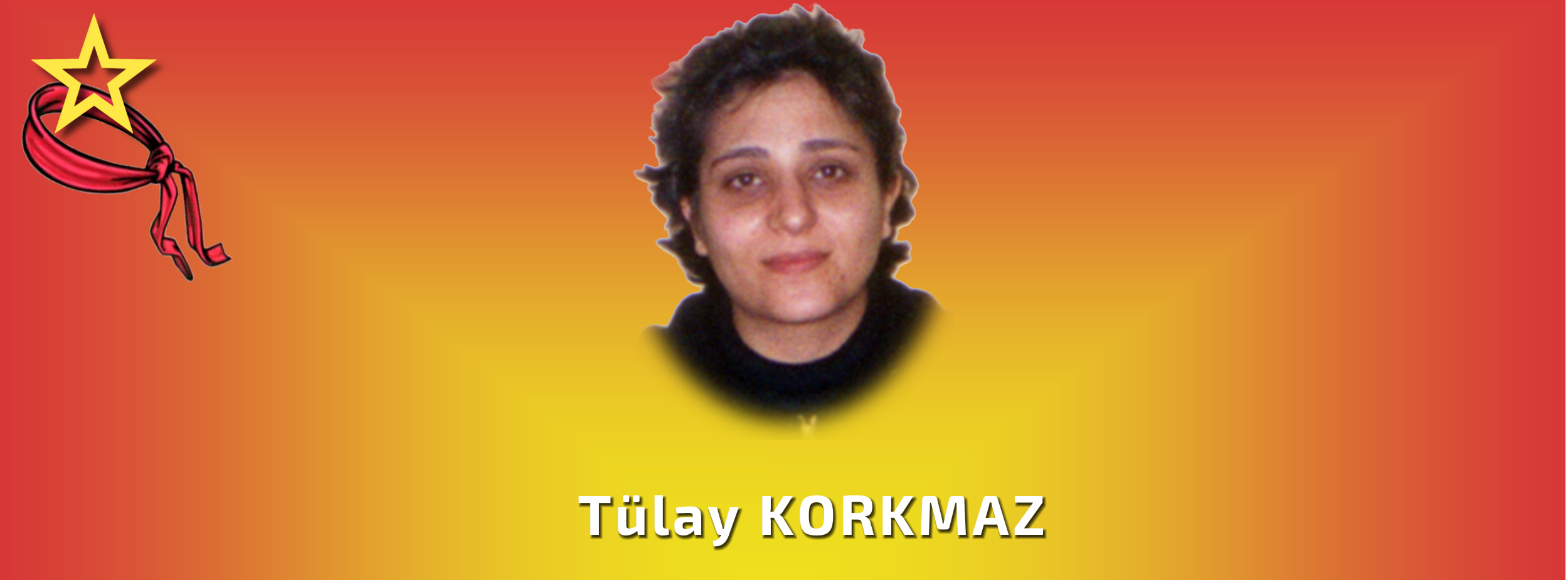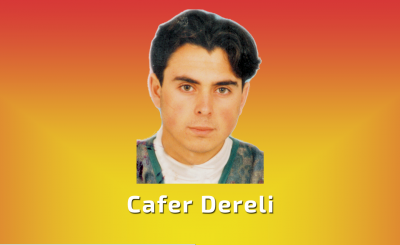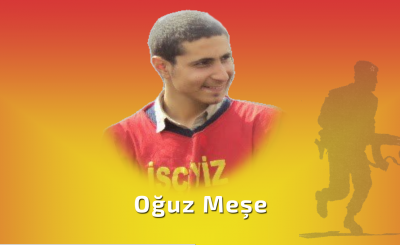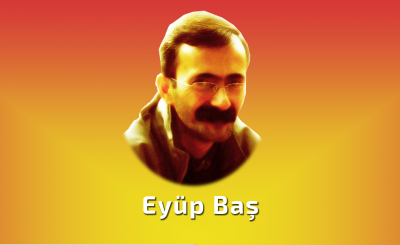Tulay Korkmaz was born on September 24, 1976 in Iskenderun, Hatay province (southern Turkey). She was of Turkish nationality and her family are Sunnis. She was the child of a reasonably well-off family. As she herself said, she “grew up as a child who got everything I wanted and everything was done for me”.
She grew up in a bourgeois or petit bourgeois environment. But later, she began to grow uneasy about such things. She came to dislike bourgeois ways of life and relations. She started at high school. A friend who was a revolutionary wrote letters to her. In the letters to Tulay she “mentioned injustices, poverty and socialism”. But these letters distanced them somewhat. The friend wrote to her again. She felt things were different from what she was being told. She did not know revolutionaries. They were not part of her surroundings. She bought the journal Mucadele (The Struggle) and read it. “In the meantime I kept receiving letters and they told me about the revolutionaries. They explained revolutionary relations and their way of life. Their way of life very different from how I lived.”
On May Day 1995 she went to a rally. There was a contingent on the march, and there she got to know the revolutionaries. She had to join the struggle, understand it and learn it. She joined in actions like hanging banners about disappearances and to protest against the national elections and she also handed out leaflets. She expressed her views thus: “I wanted to be a revolutionary. In particular, I can say that my revolutionary preferences were strengthened by the 1996 Death Fast.” In 1996, she won a place at Cukurova University to study nursing. As soon as she went to school, she began her duties. She started to interest herself in youth organisations in Adana. A short time later she took her place in the central coordination of youth and became the responsible official for youth in the Mediterranean region. She tried to create and establish youth
organisations in places where they did not exist. On April 28 in Antakya, she was detained but did not give a statement to the police. She developed rapidly. Equally rapidly, she learned, she understood and put it into practice. In this way she was one of our young people who was a model of development and taking on responsibility. There was nothing she could not do. There was a lot she did not know, but her answer in such situations was “I don’t know it, but I will learn it and do it.”
This was her answer and this was what she did. The result was that she united knowledge and experience, was realistic and did not deceive herself. As part of this development, she started to be involved in youth organising in the Mediterranean, the Aegean and Kurdistan. While she learned, her self-confidence grew. She grew stronger. She came to know her people, the movement and the enemy. In the middle of 1998 she carried out illegal work in Istanbul and fulfilled various duties.
On November 17, 1999 she was detained. She was held for seven days. She made no statement to the torturers. She did not say one word to them. To break her resistance they brought her father to the interrogation room. She also said nothing to her father. She left the torturers helpless. She was then held in Umraniye Prison. When the cell attack came, she was ready as always to do her duty. Everything was clear in her mind. This is how she wrote to express her willingness:
“We are going through a difficult period. The enemy wants revolutionary willpower, beliefs and our people to surrender… Another clash is coming… the enemy demands another price from us and in this way our sacrifices will be heavier and we will give many more martyrs. With this resistance it will be seen that once again the enemy will not make revolutionary willpower and beliefs surrender. We will win this battle of wills with our martyrs.”
Tulay and those like her are resisting in cells and in hospitals and with our people are waging a liberation war of the women While Tulay was in hospital, Justice Minister Sami Turk now tried to legalise the torture of forcible medical intervention for those like her. Using doctors of the Mengele type, the orders of Sami Turk and Osman Durmus left Death Fast resisters Savas Dortyol and Erkan Yirdem handicapped with memory loss. But this too was no “solution” for the oligarchy. The will of those like Tulay to win either “death or victory” continued even under this tyranny. In the cells, hundreds of Death Fast resisters are still on the Death Fast, displaying the same willpower. The new laws of Sami Turk cannot break this willpower.




